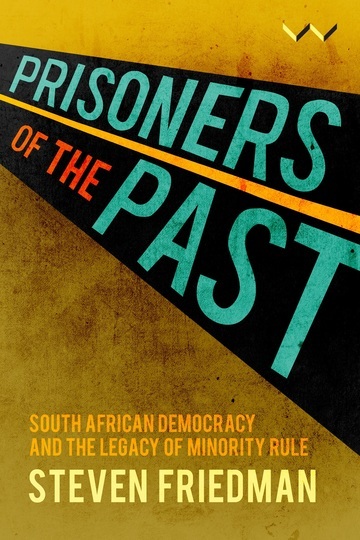Prisoners of the Past
South African democracy and the legacy of minority rule
- Publication Date: June 2021
- Dimensions and Pages: 234 x 156mm; Extent: 264pp
- Paperback EAN: 978-1-77614-684-0
- eBook EAN: 978-1-77614-687-1
- PDF EAN: 978-1-77614-686-4
- Rights: World
- Recommended Price (ZAR): 385.00
- Recommended Price (USD): 30.00
Friedman offers incisive analysis of South Africa’s incomplete transition by demonstrating how ‘path dependence’ has entrenched a political economy of insiders and outsiders that reinforces the racial and social inequalities of the past. Using the work of Mamdani and Wolpe, Friedman makes a compelling argument for new negotiations to create an economy in which all members of society have a stake.
— Sithembile Mbete, Senior Lecturer, Department of Political Sciences and Associate Fellow of the Centre for Governance Innovation (GovInn), University of Pretoria.
| South Africa’s democracy is often seen as a story of bright beginnings gone astray, a pattern said to be common to Africa. The negotiated settlement of 1994, it is claimed, ended racial domination and created the foundation for a prosperous democracy – but greedy politicians betrayed the promise of a new society.
In Prisoners of the Past Steven Friedman astutely argues that this misreads the nature of contemporary South Africa. Building on the work of the economic historian Douglass North and the political thinker Mahmood Mamdani, Friedman shows that South African democracy’s difficulties are legacies of the pre-1994 past. The settlement which ushered in majority rule left intact core features of the apartheid economy and society. The economy continues to exclude millions from its benefits, while racial hierarchies have proved stubborn: apartheid is discredited, but the values of the pre-1948 colonial era, the period of British colonisation, still dominate. Thus South Africa’s democracy supports free elections, civil liberties and the rule of law, but also continues past patterns of exclusion and domination. Friedman reasons that this ‘path dependence’ is not, as is often claimed, the result of constitutional compromises in 1994 that left domination untouched. This bargain was flawed because it brought not too much compromise, but too little. Compromises extended political citizenship to all but there were no similar bargains on economic and cultural change. Using the work of the radical sociologist Harold Wolpe, Friedman shows that only negotiations on a new economy and society can free South Africans from the prison of the past. |
Introduction
Chapter 1 The Past Is Too Much with Us: South Africa’s Path-Dependent Democracy
Chapter 2 Path Dependence: What It Means and How It Explains South Africa
Chapter 3 The Roots of Patronage: Path Dependence, ‘State Capture’ and Corruption
Chapter 4 The Bifurcated Society: Mahmood Mamdani, Rural Power and State Capture
Chapter 5 A Cycle of Crisis and Compromise: Path Dependence, Race and Policy Conflicts
Chapter 6 Missing the Target: The Negotiations of 1993, the Constitution and Change
Chapter 7 The Power of Negotiation: The Prescience of Harold Wolpe
Chapter 8 Towards a Future: A Route Out of Path Dependence
Notes
References
Index
Steven Friedman is Research Professor attached to the Department of Politics in the Humanities Faculty, University of Johannesburg. He is a political scientist who specialises in the study of democracy; a public commentator; newspaper columnist and a former trade unionist. He is the author of Power in Action (Wits University Press: 2018).
Friedman offers incisive analysis of South Africa’s incomplete transition by demonstrating how ‘path dependence’ has entrenched a political economy of insiders and outsiders that reinforces the racial and social inequalities of the past. Using the work of Mamdani and Wolpe, Friedman makes a compelling argument for new negotiations to create an economy in which all members of society have a stake.
— Sithembile Mbete, Senior Lecturer, Department of Political Sciences and Associate Fellow of the Centre for Governance Innovation (GovInn), University of Pretoria.

